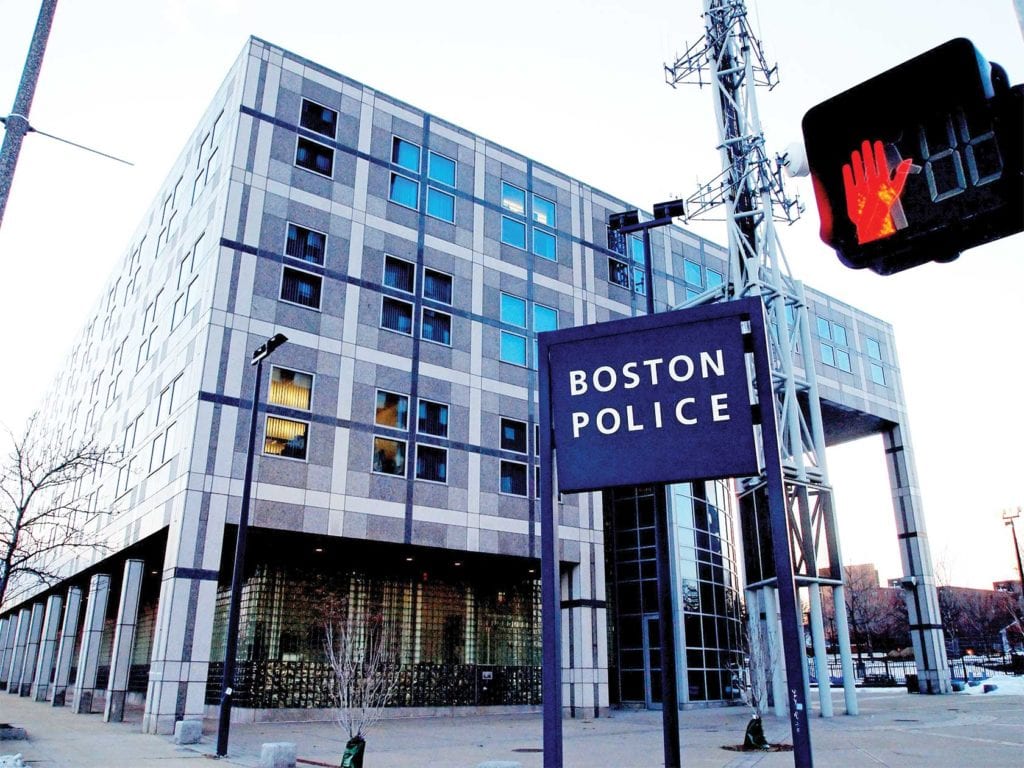BPD cooperation with feds comes under fire
Cops can’t quantify crimes solved by Boston Regional Intelligence Ctr.

In the wake of the September 11, 2001 attack on the World Trade Center and the Pentagon, the Department of Homeland Security established a network of fusion centers to facilitate information-sharing with state and local law enforcement agencies.
Fast-forward 20 years and the local fusion center — the Boston Regional Intelligence Center (BRIC) — is under fire from city councilors and criminal justice reform advocates who are raising concerns about the Boston Police Department’s surveillance practices and cooperation with federal immigration enforcement officials.
In a budgetary hearing last Monday, councilors sought answers from BRIC Director David Carabin on the effectiveness of the agency in fighting terrorism and solving crimes. They found few answers.
At-large Councilor Julia Mejia, for example, asked Carabin how many crimes the center has helped prevent or solve.
“What’s the return on investment in terms of solving crime?” Mejia asked.
“A lot of our work goes toward proactive police measures,” Carabin answered. “Some folks look for metrics in this regard. We have a lot of success stories, but a lot of proactive police measures are difficult to evaluate.”
Kade Crockford, who heads the ACLU of Massachusetts Technology for Liberty Program, says she doubts the city is getting its money’s worth from the agency.
“I’ve never seen a shred of evidence that the BRIC is making Boston safer,” she told the Banner. “Government agencies are always required to show their work. In this case, people just kind of shrug and say, ‘The police say they need it, so we’re going to provide it.’”
Last week’s exchange between the City Council and police officials came as the body is in the midst of budget hearings. Last year, a group of Black, Latino and Asian councilors sought unsuccessfully to cut the police department’s budget by 10% and redirect the $40 million in savings to violence prevention programs and other social services.
This year, councilors are again looking at how to curtail increases in the department’s budget, which has grown from $290 million in 2011 to $414 million in 2020. The BRIC claims $3.8 million of those funds. Other funding BRIC comes from state and federal government. Carabin said the agency is looking to fill seven positions, including three data analysts and a supervisor.
He testified that a large portion of the agency’s work is to identify crime trends and share information with people within law enforcement who are responsible for deploying resources.
Some critics of the BRIC point to its role in sharing information from the BPD’s controversial gang database with federal authorities. Attorney Kerry Doyle, who defended a client BPD had pegged as a gang member in a deportation case, said police often use flawed evidence in determining who is a gang member.
Her client was detained for 30 months and had an application for a green card denied, despite having no criminal convictions. Police justified his listing as a gang member based on his having been assaulted by a group that officers said were part of a gang.
“It was really all based on information in the BRIC,” she told the Banner.
Doyle said she wrote letters to BPD informing them that her client was not a gang member, but never received a response.
“There’s no system to get out of the gang database,” she said. “The entire database is people of color. For immigrants, it’s an extraordinarily blunt tool that’s wielded against already traumatized young people.”
Does BRIC work?
Carabin told the council the BRIC ensures seamless communication between agencies and “de-confliction” — making sure federal, state and local law enforcement aren’t in conflict while working on the same crime. But what little activists have been able to discern about the BRIC’s inner workings hasn’t shown the agency to be particularly effective.
In the only major case of terrorism to strike Boston in the last 20 years — the 2013 marathon bombing — FBI officials failed to share information on Tamerlan Tsarnaev with local law enforcement agencies, raising questions of whether the BRIC has actually served its original purpose.
In 2012, a bipartisan review by the U.S. Senate Permanent Subcommittee on Investigations found that fusion centers had “not yielded significant useful information to support federal counterterrorism intelligence efforts.”
“They couldn’t identify a single case of fusion centers providing a single useful bit of information,” the ACLU’s Crockford noted.
Former Wyoming Republican Senator Tom Coburn, who initiated the investigation, said in the committee’s report, “It’s troubling that the very ‘fusion’ centers that were designed to share information in a post-9/11 world have become part of the problem. Instead of strengthening our counterterrorism efforts, they have too often wasted money and stepped on Americans’ civil liberties.”
More than eight years later, at least some of Boston’s city councilors continue to raise the same concerns.
District 5 Councilor Ricardo Arroyo told the Banner he wasn’t surprised police officials couldn’t cite statistics showing how many cases were solved through the BRIC’s information sharing with federal agencies.
“I haven’t yet seen the police present a good reason to keep BRIC going,” he said.







